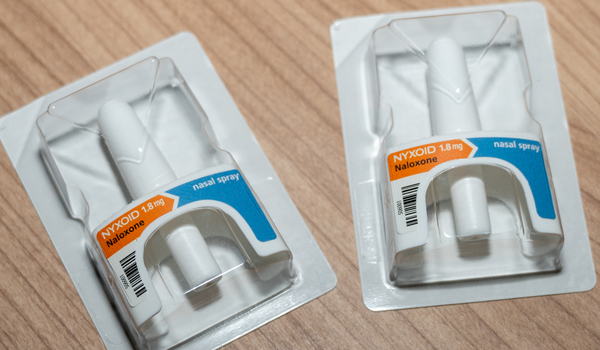Frontline officers in Northamptonshire to pilot use of Naloxone
A number of Northamptonshire Police officers are being trained in the use of Naloxone – a medical nasal spray designed to save lives of people who have suffered a drug overdose.
Neighbourhood officers working on the Operation Revive programme in Northampton, Wellingborough and Kettering, will now be carrying the spray, having been trained and certified in its use.
More frontline officers will soon also be able to choose to carry Naloxone when the specialised training is rolled out further, the force said.
It added: “The carrying of Naloxone by officers is voluntary and full training will be provided to all officers who sign up to the scheme.”
The nasal spray is an emergency antidote for overdoses caused by heroin and other opiates or opioids. The medication works by temporarily reversing the effects of the overdose by reversing the depression of the central nervous and respiratory systems.
In 2005, Naloxone was added to a list of medicines that anyone can legally administer in an emergency to save a life. Since February 2019, Naloxone has been available in a pre-packaged nasal spray.
The spray delivers Naloxone up the nose where it is quickly absorbed and blocks the drug from affecting the body. The reaction is usually very quick and prevents the opioid from blocking the breathing centres of the brain which would cause suffocation – the main cause of death in opioid overdose – and in turn buying valuable time to keep the subject alive pending arrival of paramedics.
The force is working with partners including Public Heath England, CGL and S2S as part of the pilot.
Detective Superintendent Steve Watkins, who is leading the project, said the spray had been successfully a number of forces including others across the East Midlands region.
He said: “Sadly, we are encountering more drug overdose victims, in part due to the proliferation in the use of highly dangerous synthetic drugs.
“Naloxone gives frontline officers an opportunity to administer a vital lifeline to users who have overdosed on heroin or heroin cut with synthetic drugs.
“We’re training a number of our frontline officers to use the spray, which can be used to counteract the effects of the overdose and prevent a person from dying, pending emergency medical support from ambulance.
“The spray is already being used by ambulance crews and other partners in the county, with the move to equip our police officers with the spray providing further opportunities to prevent drug-related deaths from synthetic opioids.
“The uptake will be on a voluntary basis but at the end of the pilot we will explore the impact of the trial to determine whether we continue to equip officers going forward.”


